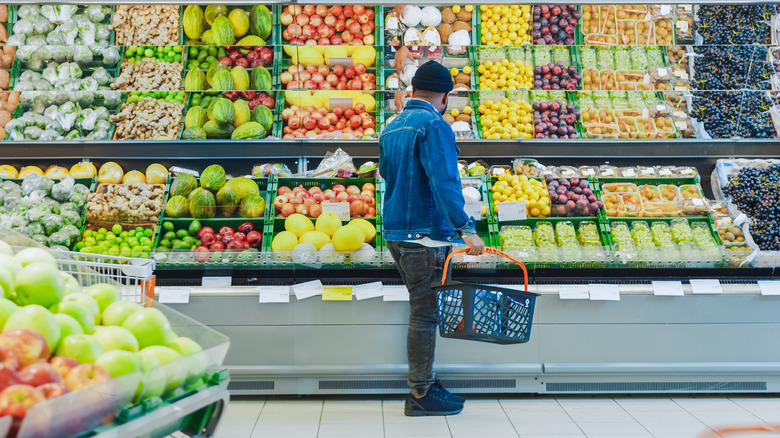What's The Worst Grocery Store For Organic Food? Here's What Consumers Say - Tasting Table Survey
Whether you're a die-hard organic food enthusiast or simply dabble in organically grown fruits and vegetables, chances are you've purchased organic products at some point in your grocery shopping career. The USDA first created the official "organic" certification in 2002 to recognize agricultural producers who follow a strict set of guidelines for raising crops and animals through natural means.
To be certified as organic, farmers must meet a range of federal regulations related to animal raising practices, soil quality, and the use of prohibited substances like synthetic pesticides and fertilizers (via USDA).
In the years since the certification was created, the organic agriculture industry has boomed as consumer demand for organic products has increased. Today, there are nearly 46,000 certified organic food businesses worldwide — over 28,000 of which are in the U.S. — representing a $60 billion industry (via USDA). A recent survey indicated that around 82% of Americans actively buy organic food.
And while there's no denying the popularity of this rapidly growing industry, when it comes to shopping organic, not all grocers are created equal. To get to the bottom of the best market for organic groceries, we surveyed a group of shoppers, asking: "Where do you shop for organic foods?"
One of the nation's top grocers fell to the bottom of the organic pack
Survey respondents were asked to select between some of the top national retailers known for their organic selection, including Whole Foods, Trader Joe's, Sprouts, and Target, in addition to local farmer's markets and regional grocery stores.
Despite being one of the top 10 grocers in the country (via Food Industry), retail juggernaut Target fell to the bottom of the rankings, receiving just 6.12% of the total vote. Although the retailer does offer organic products, the poll indicates that shoppers aren't specifically turning to Target for its pesticide-free fruits and vegetables.
Narrowly edging out Target, with 6.46% of the vote, was Sprouts, an Arizona-based retailer known for its organic offerings that potentially suffered in the rankings for being a comparatively smaller chain.
In the middle of the pack was Local Farmer's Markets, which received 17.35% of votes, and Trader Joe's, which was selected by 17.52% of respondents. Coming in second place, with 22.62% of the total vote, was Whole Foods, the popular natural marketplace that lists its core values as selling "the highest quality natural and organic foods."
The organic retail behemoth was bested only by the option that encapsulated a wide range of markets, regional grocery stores, which received nearly 30% of the total vote — indicating that when it comes to buying organic, shoppers like to keep it local.

